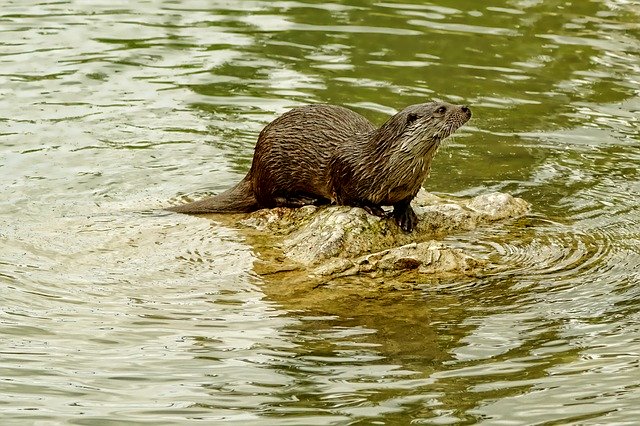Contact us today for a free quote.
Otter Surveys for Development
Why are Otter Surveys Required?
If a development is likely to affect a water body, or an area near a water body, otter surveys may be required. The only UK native otter is the Eurasian otter which is a European Protected Species under the Conservation of Habitats and Species Regulations. It is provided further protection under Section 9 and Section 11 of the Wildlife and Countryside Act 1981 as amended.
Due to this protection, it is against the law to intentionally or negligently injure, disturb, or kill an otter. It is also an offence to sell, possess, or control a live or dead otter, and to damage or destroy a breeding place or resting place, as well as to obstruct access to the breeding, resting, or sheltering place of an otter.

As the otter is a fully protected species, otter surveys should be undertaken for development sites to inform a planning application and determine the presence of otter on or surrounding a development site. Otter are typically found around water courses such as a streams, lakes, rivers and fishing lakes. If suitable otter habitat is found to be present in an area which would be affected by development, mitigation measures should be put in place to prevent otter disturbance and habitat loss.
When to Survey for Otters
It is best to survey for otters during springtime when vegetation has not been fully established and water levels recede, allowing for better views of watercourses. However, otter surveys can generally be carried out at any time of the year. More information on the best time to survey for certain species can be found on our protected species survey calendar.
How Are Otter Surveys Carried Out?
Natural England have set out guidance for undertaking otter surveys on the Government website. An experienced Ecologist should be instructed to undertake the survey. The surveyor will first look for evidence pointing to the presence of otters on the site. This involves undertaking a Habitat Suitability Assessment and a systematic search for signs of otter presence.
They will then assess the impacts of the development on the otter population and may provide guidance on mitigation measures, such as the provision of artificial holts. Several surveys may be necessary throughout the year due to the variation in otter activity during different seasons.
Signs of Otters in an Area
Different types of water body widths, depths, flows and velocities will point to the suitability of an area for otter habitats. Otters may also leave signs to indicate their presence on a site, such as:
- Otter paw prints
- Spraints/ Dung pits
- Underground dens (Holts)
- Slides
- Couches
- Feeding remains
How Can Collington Winter Environmental Assist?
Collington Winter Environmental are an experienced team of Ecologists, providing a highly professional otter surveys service to developers on all types of projects, such as roads and bridges projects. We can also provide protected species mitigation services if otters are found to be present on a development site.
Our Ecology Director, Olivia Collington, has worked with protected species across the UK, undertaking field surveys and writing scientific, readable reports for submission at planning.
We adopt a pragmatic approach to all sites, working with clients to find solutions and develop relationships. With current offices located in Greater Manchester and Dumfries, the team are well served to work nationwide. Over the years, we have built strong relationships with key stakeholders across the UK.
Please get in touch with our Ecology Director Olivia Collington (Olivia.collington@collingtonwinter.co.uk) for more information on protected species surveys (such as in relation to Bats, Great Crested Newts, Reptiles, Birds, Water Voles or Badgers) and mitigation. We also provide ecological appraisal and assessment services.
Contact Us
Registered Address
23 Bark Street East, 1st Floor, Bolton, BL1 2BQ
Cambridge Office
Future Business Centre, Cambridge Campus, Kings Hedges Road, Cambridge, CB4 2HY
Leicester Office
Rutland House, 23-25 Friar Lane, Leicester, LE1 5QQ
Bristol Office
Newminster House, 27-29 Baldwin Street, Bristol, BS1 1LT
Telephone
Head Office: 01204 939 608
Dumfries Office: 01387 378208
